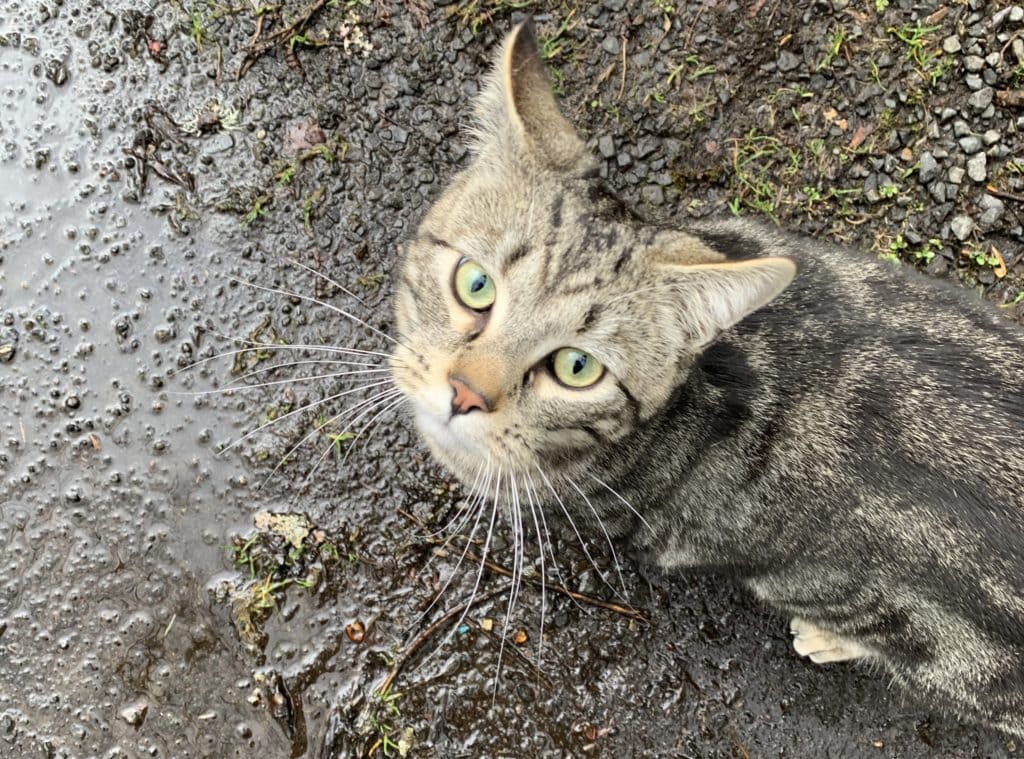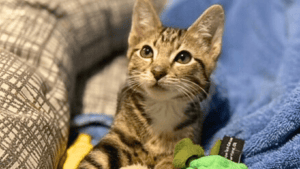A month ago, it might have seemed like the best thing you could do for a found cat was to take it to a shelter. But even when we’re not in the middle of a pandemic, animal control services are best reserved for truly lost or stray pets with no other options. So what do you do when you come across a cat in your neighborhood? Here are a few things to consider.
Is the Cat You Found Really Homeless?
This is an important question to ask yourself when you come across a cat wandering your neighborhood. After all, many families allow their feline friends to roam freely. So how can you tell if a cat is a homeless stray or lost cat who needs help rather than someone’s indoor-outdoor pet or a healthy community cat (feral cat)?
- Examine the cat’s appearance (coat condition, weight, cleanliness, ear-tipped, collar)
- Observe the cat’s behavior (making/avoiding eye contact, tail and ear movement, vocalizations)
- Research if a family is looking for the cat (check NextDoor, Facebook Lost and Found groups, Craigslist Lost and Found pages, local community boards)
- If you find a kitten or litter of kittens, follow these recommendations
If the cat seems well taken care of and social with people, it’s highly likely that kitty is someone’s pet cat who is allowed outdoors, so you don’t need to take other action. Of course, you can still take additional steps to make sure the cat has a caretaker.
How Can I Find a Cat’s Owner?
If you are concerned about a cat you’ve found, reach out to your neighbors to see if they know the kitty. Create posters and social media posts that share information about the cat, including coat color, size, sex, etc. And post a message on community boards like NextDoor, Facebook groups, Craigslist, and others asking if anyone owns the kitty. If you have a spare collar, put it on the cat and attached your contact info so the owner can reach out to you. (Additional tips for helping found cats are available here.)
While it’s tempting to bring this cat into your home or to start feeding them, it’s often better not to do this. Even if you don’t know where the cat lives, the kitty does! And if you take them in or give them too many treats, they might not head back home as usual. We do recommend continuing to monitor kitty for any signs of declining health or injuries (if the cat is ill or hurt, you may need to intervene; see next steps below). But if the cat appears healthy, it’s in their best interest to just let them be.
What About Sick or Injured Cats?
If it seems like a neighborhood cat is sick, injured, or otherwise struggling to thrive, you’ll want to contact your county’s animal services department. They’ll be able to offer assistance or recommendations. Always call ahead — many organizations have limited services or require an appointment (especially during this crisis).
As a community, we will get through the COVID-19 pandemic together. CAT and our partners in the Portland area continue to work together to keep animals safe and healthy. We are so grateful for our community’s understanding, patience, and support!
To see the critical services our local shelters are offering during this crisis, check out:







